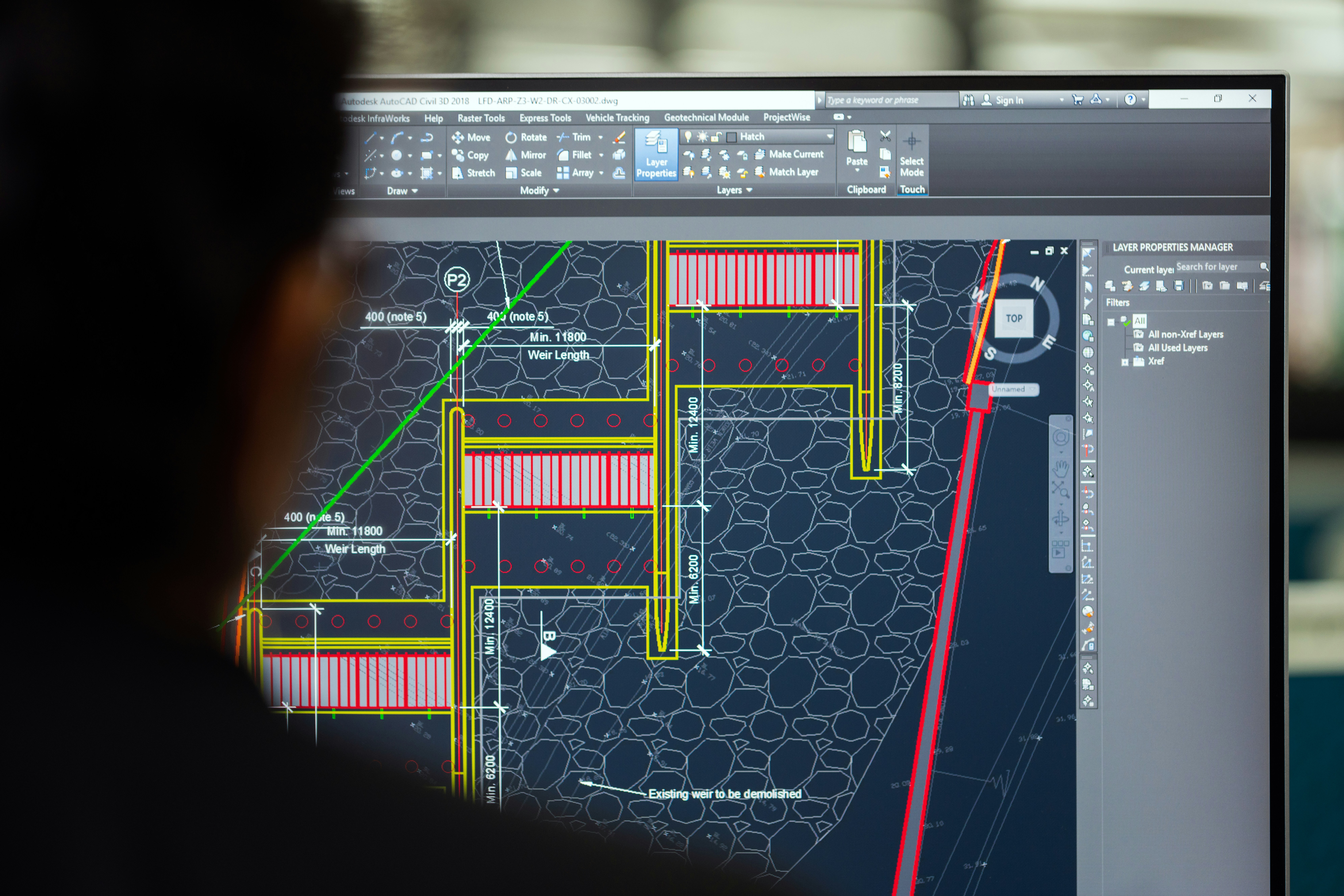In the dynamic and often challenging landscape of early 2000s Venezuela, a pioneering spirit in the field of Computer Engineering, Hermes Angulo, developed a methodology that not only revolutionized telecommunications logistics but set a new benchmark for applied computer engineering in operational management.
His strategic integration of systems engineering with real-world operational demands at INTER, one of Venezuela’s leading telecommunications companies, optimized information flow and decision-making in an unprecedented manner.
Now, over 20 years later, from his current base in Miami, Florida, where he continues to apply his extensive expertise in logistics and data-driven solutions at CTS Engineering, Angulo reflects on a career marked by foundational contributions and resilient leadership in a time long before the internet was widely adopted. His journey began at INTER, a company he helped build from the ground up, navigating immense economic and political pressures to establish a robust national infrastructure.
The Genesis of a Telecommunications Giant: INTER’s Humble Beginnings
In 1995, the technological landscape of Barquisimeto, Venezuela, was largely undeveloped. “The few households with access to international channels depended on large, expensive satellite antennas that were difficult to install,” Angulo recalls. It was against this backdrop that an Argentine consortium arrived with a bold vision: to democratize access to entertainment and telecommunications nationwide. This marked the birth of INTERCABLE, later known simply as INTER.
“At that time, we started from a hotel room; the company was practically just a concept,” Angulo explains, detailing the raw beginnings. “I was the first Venezuelan employee hired to develop the operational structure from the ground up. There were no offices, no staff, and no infrastructure; only a vision to provide modern telecommunications services in a country with significant technological limitations.” His initial role was Herculean: to transform a mere concept into a tangible reality, structuring operations, defining logistical and administrative processes, and laying the very foundations for what would become a cornerstone of Venezuelan telecommunications.
Building from Zero: The Logistical Mastermind
Creating a national telecommunications infrastructure from scratch demanded an extraordinary level of logistical prowess. Angulo, with a small but fiercely committed team, tackled every challenge head-on. “It was a complex process that required planning and executing multiple areas simultaneously,” he notes.
His first major achievement was securing INTER’s main administrative and sales headquarters in the Caracas Business Center, in Barquisimeto City establishing it as the corporate nerve center. Simultaneously, he orchestrated the establishment of the main warehouse in Cabudare, which would evolve into Venezuela’s largest signal reception and distribution center—a critical component for national expansion. Angulo also meticulously organized the extensive vehicle fleet necessary for technical and maintenance operations, ensuring nationwide coverage.
This feat was made even more remarkable by the prevailing economic climate. “At that time, Venezuela faced severe customs and currency exchange challenges,” Angulo explains. Navigating these turbulent waters, he developed “an efficient, adaptable, and sustainable logistics model [that] was key to INTER’s initial success and rapid growth.” This early experience honed his ability to innovate under duress, a trait that would define his career.
National Management Amid Economic Volatility
As INTER expanded its footprint, Angulo’s responsibilities grew exponentially. Becoming the National Logistics Manager, he oversaw more than 40 business units across Venezuela, a role made exceptionally difficult by the nation’s severe economic pressures. “The economic environment was extremely challenging, with rapidly accelerating inflation that required careful management of materials across 40 cities in the country,” he states.
His solution was a groundbreaking approach to resource allocation and performance management. “I implemented a performance-based management system (KPIs) and a centralized planning model to ensure the equitable distribution of materials needed in each city,” he elaborates. This approach didn’t just manage resources; it optimized them, aligning distribution with actual consumption levels in each region. “The key was maintaining operational efficiency and service continuity despite the economic crisis—something that very few companies were able to achieve during that period.”
Navigating Political Unrest and Social Impact
The early 2000s were a period of profound political and economic upheaval in Venezuela, fundamentally impacting the private sector. “Currency restrictions, government controls, and institutional instability made it extremely difficult to maintain sustainable operations,” Angulo confirms. Yet, INTER, under his operational leadership, not only survived but thrived. “Despite these challenges, INTER continued to grow, and my team succeeded in maintaining a stable operational structure that enabled the expansion of services into new regions. This ability to adapt and remain resilient was a key factor both in my professional development and in the company’s overall success.”
Beyond infrastructure, Angulo spearheaded initiatives with significant social resonance. One such project was the establishment of Venezuela’s largest Call Center, located in a former movie theater within a bustling shopping mall. “Under my leadership, a team of architects and civil engineers successfully designed, constructed, and equipped 300 fully operational workstations,” he recalls.
This ambitious project not only drastically improved the user experience for INTER’s burgeoning customer base but also generated a substantial social impact, creating over 300 direct and 100 indirect jobs in an economy desperately in need of opportunities. “It was undoubtedly one of the most significant initiatives of my career, both for its scale and its human and technological impact, establishing INTER as a benchmark in customer service in Venezuela.”
The Methodology That Changed Computer Engineering
At the heart of Angulo’s transformative impact at INTER was his innovative approach to integrating disparate administrative and operational systems. The company managed two primary administrative systems: one for subscribers and another for internal administration. “Both were integrated to provide real-time reporting to the Technical Operations and Finance Vice Presidencies,” Angulo explains, laying the groundwork for his methodology.
It was within this crucial intersection of information and operations that Angulo developed what he describes as “a technological and logistical integration methodology that combined systems engineering with operational management.” This approach was revolutionary because it seamlessly merged the logical rigor of computer science principles with the practical demands of large-scale logistics.
The methodology’s core strength lay in its ability to “optimize the flow of information between technical and administrative areas, significantly improving real-time decision-making.” By harmonizing these previously siloed systems and data streams, Angulo enabled INTER to gain an unprecedented, holistic view of its entire national network. This wasn’t merely about data collection; it was about ensuring that the right information reached the right decision-makers at the right time, fundamentally altering how the company operated.
The impact was profound and far-reaching. “Later, the model was adopted by other divisions of the company and became an internal benchmark for efficiency,” Angulo states. This integrated approach, rooted in the principles of systems engineering and real-time data analysis, led to tangible improvements: “enabling the reduction of response times, improvement of inventory control, and increased productivity across the entire national network.”
This methodology demonstrated how advanced information engineering principles, when applied intelligently to complex operational environments, could drive unparalleled efficiency and strategic advantage, effectively redefining the practical application of computer engineering within the telecommunications sector in Venezuela.
A Legacy of Innovation and Resilience
Hermes Angulo’s foundational contributions at INTER were just the beginning of a distinguished career characterized by a relentless drive for efficiency and innovation.
As Senior Business Manager at Inter Corp in Venezuela, he managed national and international procurement, supplier evaluations, and sophisticated project management, continuously monitoring logistics performance metrics to optimize operations. His entrepreneurial spirit also led him to co-found Quality Cleaners, an ecological dry-cleaning franchise, which he successfully expanded as a leading eco-friendly brand. Additionally, as Director and Executive Leader at TIVCA C.A., a cable electrical manufacturing company, he implemented quality standards that secured export certifications and played a crucial role in national energy sovereignty.
Hermes Angulo, holding a bachelor’s degree in science information from the Technology University of Central Region in Venezuela, continues to leverage his deep understanding of data modeling, analytical thinking, and business management. In his current role as Engineering Technician at CTS Engineering in Doral, Florida, he performs statewide inventory checks for railroad crossing signs, documents vital infrastructure data, and conducts passenger counts for transit systems—tasks that echo his lifelong commitment to data-driven operational excellence.
From the nascent stages of INTER in a hotel room to revolutionizing information flow across a complex national network, Angulo’s methodology of technological and logistical integration stands as a testament to his foresight. It underscored the critical role that applied computer engineering and robust information systems play in transforming operational efficiency, solidifying his legacy as a true pioneer in Venezuelan telecommunications and a visionary who redefined the scope of engineering in the challenging early 2000s.


